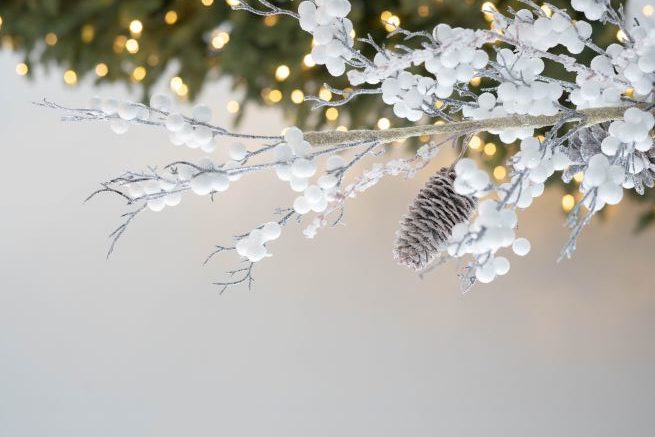
Let’s Stop Saying “At Least”
By: Amy Lied
When someone you love dies, it seems to be fairly customary to express your sympathies followed by some platitude to attempt to lessen the griever’s pain. This is where the “at-least” statements come into play.
A few of my favorites after my son died were:
“I’m so sorry for your loss.” Followed by –
- God needed another angel.
- Everything happens for a reason.
- At least you didn’t really know him yet.
- At least you know you can get pregnant.
- This was all a part of God’s plan.
I’m guilty of making similar platitudes myself. My friend’s grandmother died; “at least she isn’t suffering anymore”, “She lived a long life”, “At least she is reunited with her husband”.
Prior to losing Asher, I didn’t know any better.
Up until that point, I had only experienced the death of my grandparents. Their deaths followed the natural order of things, grandparents are supposed to pass when they reach a ripe old age after living a good life. To me, those platitudes seemed applicable because they were true. My grandparents lived long lives and it was their time to go. Obviously, I still miss them, but I don’t think of them every day like I do my son. Their deaths didn’t annihilate the future I had planned for my family. Their passings were expected to happen in my future.
Since losing Asher, I’ve learned that there is no need for these tired expressions after someone loses a loved one for both the unexpected and the expected losses.
Death is hard, but inevitable.
The unexpected losses in life have a way of shaking people to their core. They try to make sense of the senseless.
One way of doing that is by sharing these “at least” and cliché statements. Babies can’t just die before they have lived. There has to be a reason for it! When they express their sympathies for your loss, they have to rationalize it for themselves, so an overused sentiment is thrown in there to ease their fear and anxiety, not yours.
The expected losses are no less painful for those close to the deceased. They knew it was coming. They were prepared for it, but they are still devastated by it. They still lost someone they love. There is no need to offer anything but acknowledgement of their pain. Even if the “at least” statement is true, verbalizing it to the griever doesn’t help them.
Society’s ritual of trying to ease the griever’s pain has the tendency to only exacerbate it.
The comments tend to gloss over the immense loss that person is feeling. They end up making the receiver of them feel like they shouldn’t be as sad as they are, like their pain shouldn’t be THAT bad because “at least” x, y, and z are happening.
It is a custom that needs to change. We need to get better at feeling empathy, instead of expressing sympathy. When we become more empathetic people, we can understand how these cliché phrases could make the receiver feel. Once we do that, we can stop offering sympathies and start offering acknowledgement which is all the griever wants.

About Amy Lied
Amy Lied is a wife and a mother. Her son, Asher, was inexplicably born still on February 19th, 2017. Before losing Asher, she suffered a miscarriage and struggled with unexplained infertility. After losing Asher and struggling to conceive again, she went back to treatment where she became pregnant with her twin daughters; Harper and Scarlett. She has documented her journey from the beginning of her infertility struggles on her blog, Doggie Bags Not Diaper Bags. She is also a co-founder of The Lucky Anchor Project, an online resource for loss families that houses an Etsy store whose profits are donated to loss family non-profit organizations. Sharing her journey has helped her cope and she hopes it also helps others who are walking on this road of life after loss.

I have been at fault for saying some of these very sentiments to others. I have also been on the receiving end of many of them. My husband and I lost 9 babies between 8 to 12 weeks gestation. Those were our babies, with beating hearts, tiny hands and feet, and loved beyond measure by us. We were never able to hold them in our arms, but we forever hold them in our hearts. We have one amazing daughter and thank God for allowing us to hold her in our arms as well as our hearts.
I know I wanted to yell at people when they would say “at least you lost them early” and “you can try again”. We loved those babies and were prepared to do anything for them. They were a part of our lives, our hopes and dreams, our future. People don’t understand that.
I have become much better at telling our story, relaying to others just how insensitive those comments are, and how others can be there for anyone going through a situation like ours. When someone says something insensitive to me now, I say “we did lose our babies early, but we loved them and wanted them, so the time of loss didn’t change the grief we have gone through”.
[…] ( IG:@amyalied, Doggie Bags Not Diaper Bags Blog) Contributing Author on Still Standing Magazine, Sharing Magazine, Courageous Mothers, and Still Mothers Unexplained Infertility Mother to Asher who was born into […]